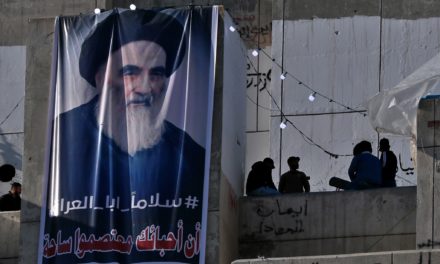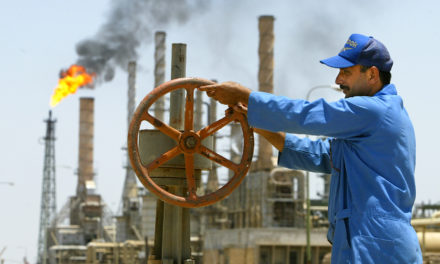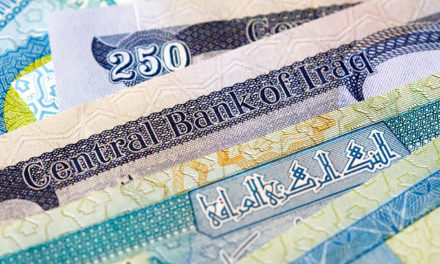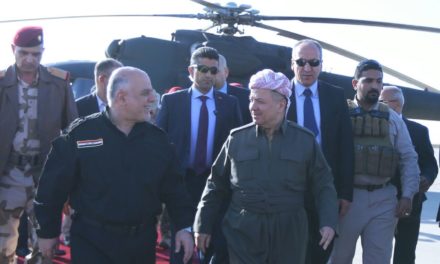In the morning of October 15, 2017 the world watched how Iraq’s federal forces took back Kirkuk in a swift and coordinated way, continuing their advances with limited resistance to retake most of the areas outside the official borders of Kurdistan Region of Iraq (KRI) taken control by the Peshmerga in previous years.
While foreseeable, this development surprised the world and changed many equations, not only in Iraq and the whole region but also within the Kurdish camp. The dominating narrative of Erbil before and shortly after the referendum collapsed at the same speed Iraq’s federal forces were taking over the ‘disputed areas’ and a set of new narratives began to emerge. While the dominating narrative before the referendum was directed against Baghdad and critical about the lack of support from the international community, the emerging narrative was more diverse and inward looking.
Bafel Talabani’s statement was the beginning of a new trend, although not vocal in the past, has been developing inside the Patriotic Union of Kurdistan (PUK) for awhile. Combined with Barham Salih’s newly created Coalition of Democracy and Justice (CDJ), the opposing party Gorran and other smaller parties spearheading a narrative countering that of the Kurdistan Democratic Party (KDP) and publicly challenging the KDP’s dominance over Kurdish affairs. This KDP counter narrative that emerged can also be characterized through several themes.
The first major theme is based on the conviction that the referendum was a mistake. This view about the referendum is not entirely new. It was the main cause behind starting the ‘No for Now’ campaign organized by the New Generation Movement (NGM). Furthermore, Gorran was critical about the referendum early on as well. Except the KDP and the PUK being divided on the issue, all other parties shared more or less the same view. Nevertheless, virtually all the influential leaders in Kurdish politics took part in the referendum on the day of voting.
But the view that the referendum was a mistake remerged strongly and became the center of the new narrative after the events in Kirkuk. It essentially was seen as the direct reason for the deterioration of the Kurdish situation in Iraq. The most vocal politicians on this issue were Bafel Talabani and Ala Talabani, two influential figures in the new trend that defied the old guards in the PUK.
Also, a new wave of criticism focusing on corruption and incompetence in the KDP started to regain momentum. While Gorran championed this campaign since its establishment in 2009, dividing its critique evenly between the PUK and KDP, it was later joined by NGM in doing that. Immediately after Kirkuk’s events almost all major parties and political trends in Sulaymaniyah were united in their criticism of the Barzanis.
This theme followed by the realization that the Kurds are in need of a new representation to negotiate with Baghdad based on the Iraqi constitution. Bafel Talabani thinks the [new] PUK should play the leading role in the negations with Baghdad. On the other hand, Gorran, CDJ, the Kurdish Islamic Group (KIG) called for the formation of a provisional government. This call manifested itself in an official demand after a meeting between these parties, giving an ultimatum to the current government to respond. Noticeably, NGM abstained “for now” from joining any coalitions.
It is also possible to combine these themes in one overarching theme that sees the KRI within an Iraqi context. While the dominating narrative before the referendum aimed to distance KRI from Iraq, and only called to engage with Baghdad in order to negotiate secession, the new narrative tries to do the opposite. It does not accuse Baghdad of being the source of all troubles in the KRI, but believes that Baghdad is the necessary place where positive solutions can be negotiated for the Kurdish people within the framework of a unified Iraq.
Barham Salih reiterated several times in the last weeks that dialogue should be held with Baghdad about everything and not only the Kurdish situation, denouncing Barzani’s logic of “drawing borders with blood”. Ala Talabani also stated that the Kurdish people decided their fate when they voted for the Iraqi constitution in 2005. While this is not the first time a Kurdish official has said that, it is rather telling that she makes such statements at this time. Surprisingly, even the KDP’s Secretary, Fazil Mirani said that “he is proud to be an Iraqi citizen” in a television interview shortly after the events in Kirkuk. Again, this is not to say that KDP has changed its opinion about independence, but it certainly is a signal aiming to ease the tension with Baghdad.
As for KDP’s narrative, it stopped being cohesive and composed as it was before the developments in Kirkuk. After Kirkuk, the two parallel narratives that the KDP public relations apparatus was skillfully balancing collapsed into a distorted media campaign that seemed agitated, confused, and often insensitive.
Rudaw and Kurdistan 24, the two media outlets owned by the Barzanis engaged directly or through their top journalists in irresponsible and insensitive media practices, provoking the Iraqi National Communications and Media Commission to take measures against them. Official KDP accounts like the KDP Foreign Relations Office who are meant to be diplomatic, started to use a propaganda style of communication to address the public. Top advisors to Barzani began to share news about the skirmishes between the Iraqi Security Forces and the Peshmerga forces loyal to KDP, bragging about losses on the Iraqi side and spreading fake news. Furthermore, the KDP engaged after the referendum in a defamation campaign against the new trend in the PUK, blaming some of its members for the loss of Kirkuk.
KDP’s narrative remains agitated. Barzani’s resignation on October 29th, 2017 combined with the violent events that day showed clearly that KDP’s current narrative will continue dominating the political discourse in Erbil.
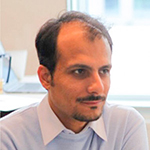
Muhammad Al-Waeli
Muhammad Al-Waeli is an Iraqi commentator on political and social issues. He is currently doing a PhD in Human Resource Management and is interested in politics, media, and development.


